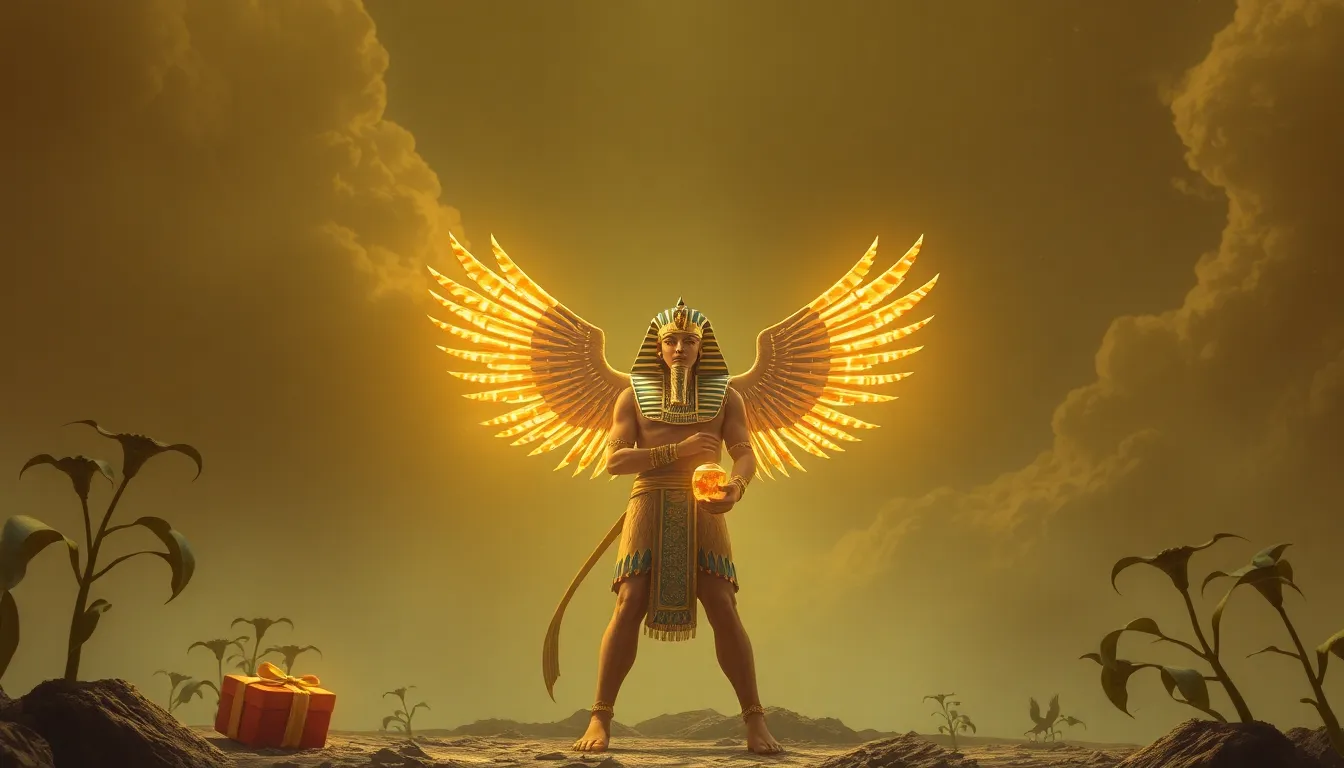The Tale of the God of the Harvest: Osiris and His Bountiful Gifts
I. Introduction
Osiris is one of the most significant deities in ancient Egyptian mythology, revered as the god of the afterlife, the underworld, and the harvest. His narratives are integral to understanding the cultural and spiritual life of ancient Egyptians, especially their agricultural practices. The importance of harvest and agriculture in ancient Egypt cannot be overstated, as these were the backbone of their economy and sustenance. This article aims to explore the story of Osiris, his significance in Egyptian mythology, and the enduring impact of his myth on agriculture and society.
II. The Mythological Origins of Osiris
Osiris’s origins are steeped in rich mythology. He was born to the sky goddess Nut and the earth god Geb, making him a vital figure in the Egyptian pantheon.
- Birth and Family Lineage: Osiris is the firstborn child of Nut and Geb, and he has several siblings, including Isis, Set, and Nephthys.
- Role in the Egyptian Pantheon: Osiris is often depicted as a king who brings civilization to humanity, teaching them the principles of agriculture and governance.
- Osiris as the God of Fertility and Agriculture: His association with fertility and agriculture solidified his position as a crucial deity for the prosperity of the land.
III. The Symbolism of Osiris
Osiris embodies profound symbolism that transcends mere agricultural significance.
- Representation of Death and Resurrection: Osiris is often associated with the cyclical nature of life and death, representing the belief in resurrection.
- Osiris as a Symbol of Regeneration and Renewal: His death and subsequent resurrection symbolize the regeneration of crops and the annual agricultural cycle.
- Connection to the Agricultural Cycle: Osiris’s myth parallels the seasonal changes, particularly the flooding of the Nile, which was essential for farming.
IV. The Story of Osiris: Betrayal and Resurrection
The narrative of Osiris is filled with drama, betrayal, and ultimately, hope.
- The Tale of Set’s Jealousy and Betrayal: Set, Osiris’s brother, was envious of his power and popularity. He devised a plan to kill Osiris and usurp his throne.
- The Death and Dismemberment of Osiris: Set murdered Osiris and dismembered his body, scattering the pieces across Egypt.
- Isis’s Quest to Resurrect Osiris: Isis, Osiris’s devoted wife, embarked on a perilous journey to recover the parts of her husband’s body, ultimately succeeding in bringing him back to life through her magic.
V. Osiris’s Gifts to Humanity
Osiris’s contributions to humanity extend beyond his mythological narratives. He is credited with several vital gifts that shaped ancient Egyptian society.
- The Introduction of Agriculture and Farming Techniques: Osiris taught the Egyptians how to cultivate crops, ensuring food security and stability.
- The Significance of the Annual Flooding of the Nile: The Nile’s inundation, which was seen as a blessing from Osiris, revitalized the land and allowed for bountiful harvests.
- Osiris as a Provider of Sustenance and Abundance: His association with fertility ensured that the people had enough resources to thrive, making him a beloved figure among the populace.
VI. Worship and Rituals Associated with Osiris
Worship of Osiris was an essential aspect of ancient Egyptian life, particularly in agricultural communities.
- Festivals and Celebrations in Honor of Osiris: The most notable festival, the Wepet-Renenutet, celebrated the harvest and honored Osiris’s gifts.
- The Role of Temples and Priests in Agricultural Practices: Temples dedicated to Osiris served as centers of worship and agricultural knowledge, where priests performed rituals to ensure good harvests.
- The Impact of Osiris’ Worship on the Community’s Prosperity: The reverence for Osiris fostered a sense of community and shared responsibility towards agriculture and sustainability.
VII. Osiris in Modern Culture
The legacy of Osiris extends into modern culture, influencing various aspects of contemporary life.
- Influence of Osiris on Contemporary Interpretations of Harvest: His symbolism is often invoked in discussions about sustainability and agricultural practices today.
- Osiris in Art, Literature, and Popular Media: From ancient texts to modern films and books, the story of Osiris continues to inspire artists and writers.
- The Enduring Legacy of Osiris in Agricultural Symbolism: Osiris remains a powerful emblem of fertility and the importance of the harvest in various cultures.
VIII. Conclusion
In conclusion, Osiris holds a pivotal place in Egyptian mythology, symbolizing the interconnectedness of life, death, and rebirth, particularly in the context of agriculture. His stories remind us of the significance of harvest and the essential role of nature in human existence. As we navigate modern challenges, remembering ancient stories like that of Osiris can provide wisdom and inspiration. The bountiful gifts of Osiris still resonate today, reminding us of the importance of nurturing the earth and celebrating the cycles of life.




